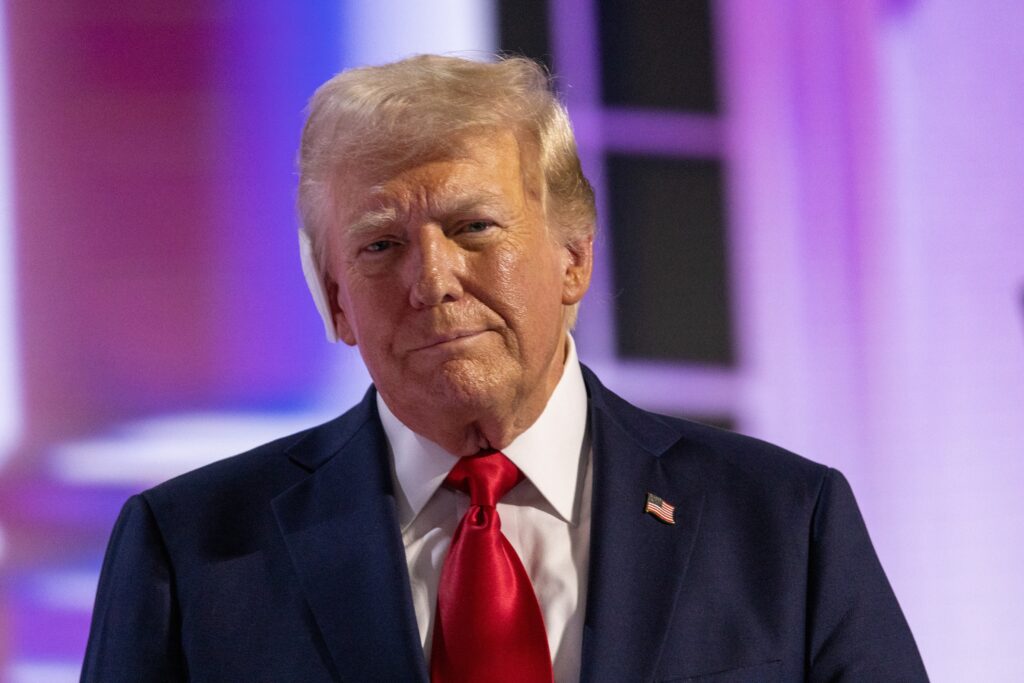Trump’s Position on Syria
Donald Trump promised to keep America out of foreign conflicts. Recently, he reaffirmed this stance regarding Syria. While in Paris, Trump declared on Truth Social, “Syria is a mess, but not our fight.” He emphasized that the U.S. should avoid Syria’s issues.
His statements highlight his campaign’s message of non-intervention. However, Assad’s fall shifted Middle East power dynamics. This raises doubts about Trump’s ability to remain uninvolved.
Challenges to Non-Involvement
The Biden administration is managing diplomatic efforts following Assad’s ousting. Antony Blinken, Secretary of State, seeks regional support from Jordan and Turkey. The U.S. wants Syria’s future government to be transparent, non-terrorist, and inclusive. It also wants Syria to avoid threats to neighbors and eliminate chemical weapons.
The fall of Assad left a power vacuum, now filled by Hayat Tahrir al-Sham (HTS), a U.S.-designated terrorist group. The U.S. aims to influence Syria’s future government. This raises questions about Trump’s ability to completely disengage.
Trump’s Foreign Policy Team
Mike Waltz, Trump’s pick for national security adviser, says Trump’s priority is avoiding new Middle East wars. Waltz outlined Trump’s “core interests” in Syria: combating ISIS, supporting Israel, and preserving Gulf Arab alliances. Syria, he believes, is part of a broader Middle East strategy.
Trump’s broader goal is to broker an Israel-Saudi Arabia diplomatic deal. He sees this as a chance to weaken Iran’s influence in the region. His approach to Syria mirrors past views. He once called Syria a “land of sand and death,” showing little interest in its affairs.
U.S. Troop Presence in Syria
The U.S. currently has 900 troops stationed east of the Euphrates River. Their mission is to combat ISIS and train Kurdish-led Syrian Democratic Forces (SDF). This military presence also prevents Iran from transferring weapons to Hezbollah. Although Trump wants to avoid involvement, his officials note that U.S. interests may require action.
Conflicting Views on Trump’s Approach
Robert Ford, former U.S. ambassador to Syria, believes Trump’s non-intervention rhetoric may change due to ground realities. He notes some in Trump’s circle prioritize counterterrorism, which may force U.S. involvement.
Wa’el Alzayat, a former U.S. State Department adviser, notes that Trump’s administration includes influential figures like Senator Marco Rubio. Rubio’s foreign policy stance could affect Trump’s approach to Syria.
Actions Contradicting Non-Intervention Claims
During Trump’s first term, he cut CIA funding for Syrian rebels and withdrew troops from northern Syria. However, his 2017 missile strike on Syria’s Shayrat Airbase, following Assad’s chemical attack, contradicted his non-intervention stance. He also imposed heavy sanctions on Syria’s leadership.
Mike Waltz noted Trump’s “not our fight” pledge does not guarantee complete disengagement. He emphasized Trump’s readiness to act decisively if U.S. interests are threatened.
Key Players in Trump’s Administration
Tulsi Gabbard’s appointment as Director of National Intelligence draws attention. Gabbard’s 2017 visit to Assad and her criticism of U.S. Syria policy sparked controversy. Her role may influence U.S. intelligence’s stance on Syria, adding complexity to Trump’s position.
Differences Between Biden and Trump’s Approach
Biden’s and Trump’s approaches to Syria share similarities. Both seek a Syrian government that aligns with U.S. interests. Both aim to diminish Iran’s and Russia’s roles in Syria. However, Biden’s support for Kurdish allies contrasts with Trump’s less-committed approach.
Bassam Barabandi, a former Syrian diplomat, predicts Trump will withdraw U.S. troops gradually, unlike the swift Afghanistan withdrawal. Barabandi expects Trump to set a clear timeline for withdrawal and establish security measures.
Turkey’s Role in Syria’s Future
Trump’s relationship with Turkish President Erdogan could influence Syria’s future. Turkey’s tension with the SDF, which it considers a terrorist group, complicates the situation. Since Assad’s fall, Turkey has launched airstrikes to force Kurdish fighters from strategic areas. A potential deal with Erdogan could give Turkey more influence in Syria, raising concerns among U.S. officials.
Conclusion
Trump’s goal to avoid entanglement in Syria faces significant challenges. Regional power shifts, U.S. troop commitments, and the rise of HTS complicate his plans. Key figures like Rubio, Waltz, and Gabbard may influence Trump’s isolationist ideals. While his “not our fight” message is clear, achieving it may prove difficult.
